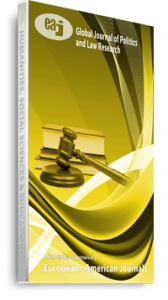The Practice of dumping in the global market is clearly of concern to all trading States, whether importers or exporters. It is a form of price discrimination and unfair competition, affecting a broad range of competing interests, both national and foreign, and products in the captive market. What protects the Gulf market in general, and the Saudi market in specific, from these injurious practices are the legal provisions of the GCC ‘Common Law on Antidumping, Countervailing Measures and Safeguard Measures and its Rules of Implementation’. Since the adoption of the GCC Common Law in 2003, almost all dumping complaints did not proceed further than the investigation stage. One possible explanation that might be provided is that there might be no real dumping problems in Saudi market. However, this explanation is difficult to accept, especially because Saudi Arabia had experienced the existence of the problem even before adopting the free market system by becoming a WTO member. Therefore, the aim of this research is to identify the gap between the theory and the application. This requires an investigation of the adequacy of the Common Law so that it can provide a sufficiently protective framework to the Saudi market against the dumping problem. It also requires exploring how the law is applied.
Keywords: Dumping, Gulf States, Saudi Arabia, WTO

